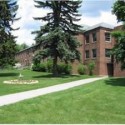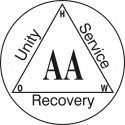Missing the pint
When Nick Kemp took a group of business clients to a rain-affected Headingley Test match he was astonished by what he saw. Having decamped to the pub owing to the lack of cricket, he watched in amazement as his companions proceeded to down a dozen pints of beer each.
“I was keeping a tab because it had to go through expenses,” he recalls. “For me it got to the stage where I was curious just to see how much they could drink.”
And while some may not find that 12 pint tally excessive, perhaps that merely underlines how firmly in the grip of binge drinking Britain now finds itself.
Now working as a therapist who helps people overcome food disorders, addictions and phobias, Nick is finding himself very much in demand as society grapples with the temptations of the drinking culture.
“There’s a certain point where people realise that going out and having a good time is different to feeling that your whole life is spent going into one pattern that’s like Groundhog Day,” he says from his office at The Orchard therapy centre in Horsforth, Leeds.
“When people come and see me it’s not because they want to stop having a good time, they just want to get some control so that their drinking is appropriate for them.
“That’s not what I think they should be drinking, but what’s best for them in the context of their sense of well being, their obligations, relationships and so on.”
Nick says that different people have different definitions of what binge drinking means. “You’ll have some people who won’t consider themselves to be binge drinkers who will be out three or four times a week.
“They may have gone from drinking six or seven pints on a Friday night and then suddenly it’s Tuesday and Thursday nights as well, then most nights and then most lunchtimes. Before they know it, they’re actually consuming vastly more alcohol than before. And in some cases they don’t realise it until something happens and they start to see it’s beginning to fall apart a bit.
“But this isn’t the same as someone who’s an alcoholic. They’re not addicted, but behaviourally they’re tied into it.”
One of Nick’s youngest clients was a 19-year-old whose mother had contacted him after his drinking began landing him in trouble.
“He would go out, start having a pint and then wake up in a police station,” Nick recalls.
“He was literally drinking to the point at which he blacked out. He was already on a police tag because he was also fighting but he couldn’t remember anything. Even within a couple of sessions he began to do things differently.
“Later I got a great testimonial back from his mum saying he had started to take interest in doing other things. When he was binge drinking his world had just shrunk down to one thing.
“By doing that he was excluding everything else – and for a lot of people that means things like their work and home lives can suffer. But often they don’t get the wake-up call until they end up in prison or court.”
Nick’s clients range from teenagers to blue collar workers and executives, but he says those who struggle to control their drinking often have key personality traits in common.
“They tend to be mentally very active – a lot of the time in the work context they’re able to meet deadlines, organise things and plan very effectively. It’s just that in their emotional lives they’re tending to default to binge drinking as a release to make them feel good. Suddenly they can’t change down into any other gear so that becomes the norm. Everyone I’ve ever met who has these sort of control issues is really not very good at being able to relax.
“They tend to be very wired, always anticipating what’s happening next. And the thing to remember is that all anxiety is anticipation, all relaxation is about being in the here and now.”
The first thing Nick tries to determine is at what times they tend to binge drink the most.
“Generally, it’s when they’re on their own, bored or have a lot of time for thinking. When it happens the least is when they’re engaged in doing other things. But there can be any number of reasons. One client found it was social obligation that made him binge drink.
“By doing that he was being part of the club so that’s what he did. Then it became part of his identity – he was doing it all the time.”
Nick uses hypnotherapy and neuro-linguistic techniques to get the brain to move from the thought of drinking to excess to the thought of having a moderate amount of drinks and enjoying the feeling of being in control.
Those who come to him for help may have to change patterns that serve to reinforce their bingeing. “A person says, ‘Every Thursday I meet Bob at the gym and then we have a few beers’, so then all the places they go to tend to reinforce the behaviours. In changing the patterns you have to change those habits. But it’s like binge eating, they weren’t always like that. They weren’t three-years-old and saying, ‘Mine’s a pint of lager’. It’s learned behaviour.
“Analysing why they have what they have is a limited approach because often they’ve already thought about it a million times over.
“So the question is not ‘Why am I doing this?’ it’s more, ‘What is it I need to be doing differently in the way I think?'”
With Britain continuing to lead the way in binge drinking it looks like Nick Kemp is set to be a very busy man.
source: Yorkshire Evening Post

